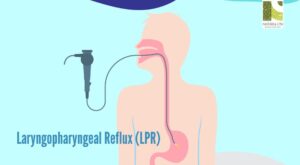Vaccines Save Lives: The Importance of Vaccination in Humans and Pets

One Shot, Lifelong Protection

Vaccination is not just a routine medical procedure—it’s one of the most effective tools in modern medicine, responsible for saving millions of lives each year. From smallpox eradication to rabies prevention, vaccines protect humans and animals alike from devastating infectious diseases. In today’s interconnected world, the health of humans and pets is more interdependent than ever—making vaccination critical for both.
Why Are Vaccines Important for Humans?
1. Prevention of Life-Threatening Diseases
Vaccines have eradicated or controlled diseases like smallpox, polio, measles, and hepatitis B. According to the World Health Organization (WHO), vaccines prevent 3.5 to 5 million deaths annually worldwide.[1]
2. Herd Immunity Benefits
Vaccination doesn’t just protect the individual—it protects the community. When enough people are vaccinated, it slows or stops the spread of disease, shielding those who can’t be vaccinated (infants, elderly, immunocompromised individuals).
3. Reduction in Healthcare Costs
Preventing disease through vaccination is far more cost-effective than treating them. A study published in Health Affairs estimated that vaccines administered to children born in the U.S. in 2009 will prevent 42,000 deaths and save $13.5 billion in direct costs.[2]
Why Are Vaccines Important for Pets?
1. Protection Against Fatal Zoonotic Diseases
Rabies, a deadly virus that can be transmitted from animals to humans, is 100% preventable with proper vaccination. India accounts for 36% of global rabies deaths, most from dog bites—underscoring the importance of routine pet vaccination.[3]
2. Core Vaccines for Dogs and Cats
Veterinarians recommend core vaccines that protect pets from highly contagious and potentially deadly diseases:
- Dogs: Rabies, Canine Distemper, Parvovirus
- Cats: Rabies, Feline Calicivirus, Feline Panleukopenia
3. Legal and Travel Requirements
In many countries, rabies vaccination is mandatory by law. It’s also a prerequisite for pet travel or boarding in kennels.
One Health: Humans + Animals + Environment
The One Health concept emphasises the interconnectedness of human, animal, and environmental health. Vaccinating pets reduces the risk of zoonotic disease transmission (like leptospirosis, rabies, or certain flu strains), contributing to broader public health. [4]
Common Misconceptions About Vaccines
- “Vaccines cause autism” – Completely debunked by numerous studies including those published in The Lancet and Pediatrics.
- “Pets don’t need vaccines if they stay indoors” – Diseases can still be airborne or transmitted through carriers like fleas or rodents.
Vaccinate to Eliminate
Vaccination is a simple yet profound act of protection—against illness, suffering, and even death. Whether it’s a newborn receiving their first dose of BCG, or a puppy getting its rabies shot, vaccines build a safety net for individuals, families, and communities.





